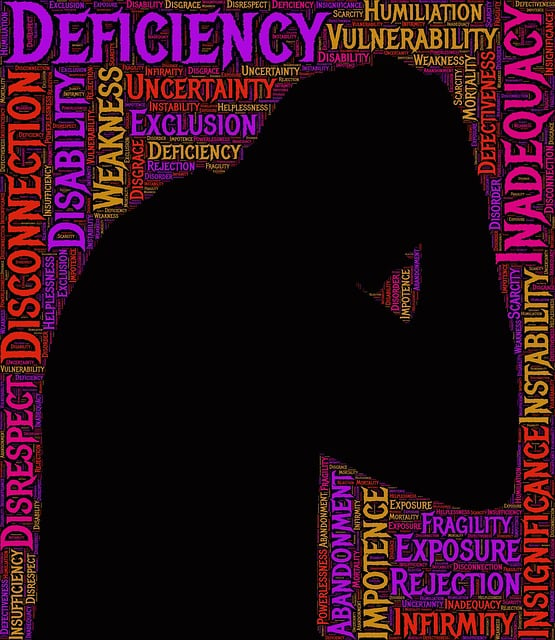Englewood Somatic Experiencing (SE) Therapy is a powerful, holistic approach to healing trauma by addressing mind-body-spirit connections. This method releases trapped emotional and physical responses, improving mood, fostering positive thinking, and empowering individuals to regain control over their lives. SE Therapy is particularly beneficial for healthcare providers facing high-stress situations, offering essential burnout prevention strategies. By integrating tactile experiences and empathy, SE creates a safe space for anxiety relief, facilitating trauma recovery and enhancing care quality for clients.
Trauma is a pervasive issue with profound implications, affecting individuals across diverse communities. Understanding trauma and its far-reaching impact is crucial in providing effective support. This article explores key aspects of trauma care, focusing on the power of Englewood Somatic Experiencing (SE) Therapy as an innovative approach. We delve into strategies for implementing comprehensive trauma support services and highlight essential training resources for professionals aiming to make a difference.
- Understanding Trauma and Its Impact
- What is Englewood Somatic Experiencing (SE) Therapy?
- Implementing Effective Trauma Support Services
- Training and Resources for Professionals
Understanding Trauma and Its Impact

Trauma is a profound and complex experience that can have lasting effects on an individual’s mental and physical well-being. It stems from diverse sources, including acute events like accidents or violence, as well as chronic stressors such as ongoing abuse or neglect. The impact of trauma manifests in various ways, affecting not just the mind but also the body. Symptoms may include flashbacks, nightmares, severe anxiety, depression, and even physical pain.
Englewood Somatic Experiencing Therapy (SE) is a highly effective approach designed to help individuals process and heal from traumatic experiences. This therapy focuses on the connection between the body’s physiological responses and emotional memories, aiming to resolve the body’s “stuck” states resulting from trauma. By addressing these physical sensations and triggers, SE facilitates mood management and promotes positive thinking. It empowers individuals to regain control over their lives and develop effective burnout prevention strategies, which are especially crucial for healthcare providers who often deal with high-stress situations.
What is Englewood Somatic Experiencing (SE) Therapy?

Englewood Somatic Experiencing (SE) Therapy is a highly effective approach to addressing and healing from trauma. This therapy focuses on the connection between the mind, body, and spirit, aiming to resolve deep emotional and physical responses that can remain trapped following traumatic events. SE Therapy utilizes various techniques designed to help individuals process and release these repressed memories and sensations, facilitating a profound sense of calm and security.
By employing empathy-building strategies and mental wellness coaching programs development, Englewood Somatic Experiencing therapy empowers clients to regain control over their lives and promote long-lasting mental wellness. This holistic treatment goes beyond traditional talk therapy by incorporating tactile and sensory experiences to help individuals re-engage with their bodies and reconnect with their true selves, ultimately fostering a sense of wholeness and resilience.
Implementing Effective Trauma Support Services

Implementing effective trauma support services requires a multifaceted approach that addresses both the immediate and long-term needs of individuals who have experienced traumatic events. One such proven method is Englewood Somatic Experiencing Therapy (SE), which focuses on helping clients process and resolve the physical and emotional responses to trauma. This therapy integrates mind over matter principles, encouraging individuals to reconnect with their bodies’ natural healing mechanisms. By fostering a safe and supportive environment, SE facilitates anxiety relief and promotes a sense of safety, allowing clients to begin the process of trauma recovery.
Moreover, burnout prevention strategies for healthcare providers are essential components of comprehensive trauma support services. Healthcare professionals who work closely with trauma survivors can experience significant emotional fatigue and physical exhaustion. Implementing strategies that prioritize self-care, such as regular breaks, supervision, and professional development opportunities, helps maintain their resilience. These practices not only enhance the quality of care provided but also ensure that healthcare providers are better equipped to support their clients’ journeys towards healing and recovery, including effective anxiety relief tactics tailored to individual needs.
Training and Resources for Professionals

Effective trauma support services heavily rely on well-trained and equipped professionals. To offer compassionate care, therapists and counselors should undergo specialized training in trauma-informed practices, such as Englewood Somatic Experiencing Therapy (SE). This therapeutic approach not only equips practitioners with advanced techniques for helping individuals process traumatic memories but also emphasizes the body’s role in healing from past traumas.
In addition to specific therapy models, professionals must have access to comprehensive resources that support evidence-based stress reduction methods and promote robust mental health. This includes training in stress management techniques, understanding local Mental Health Policy Analysis and Advocacy initiatives, and staying updated on best practices. Such resources enable caregivers to provide tailored support, fostering a safe environment for individuals to heal and regain control of their lives after traumatic experiences.
Englewood Somatic Experiencing (SE) Therapy offers a promising approach to trauma support, emphasizing the mind-body connection. By understanding the profound impact of trauma and equipping professionals with effective tools, we can significantly enhance recovery outcomes. Implementing comprehensive training and resources ensures that those in need receive the best possible care, fostering resilience and healing in a supportive environment. This holistic approach to trauma services is essential in making a positive difference in people’s lives.














